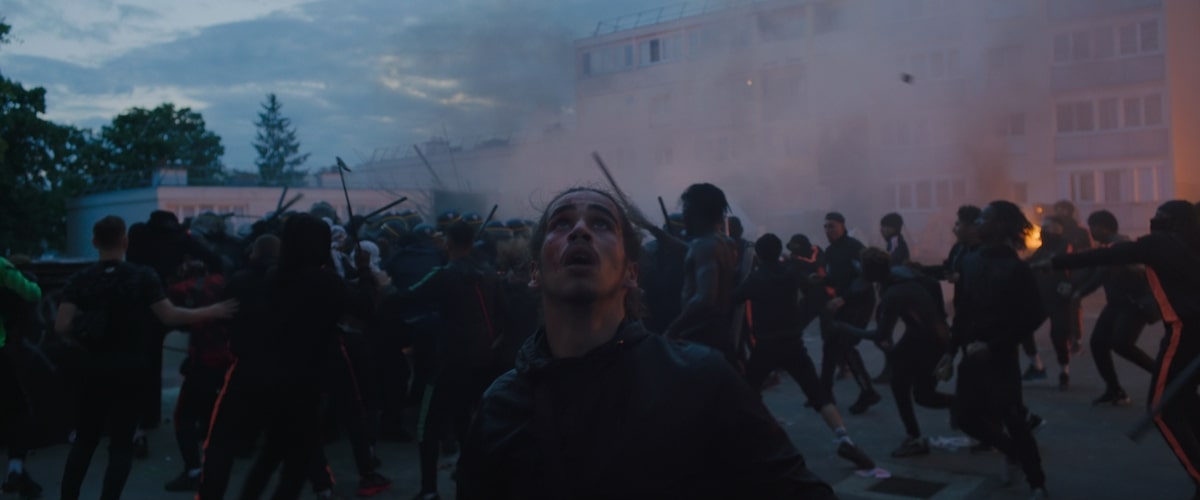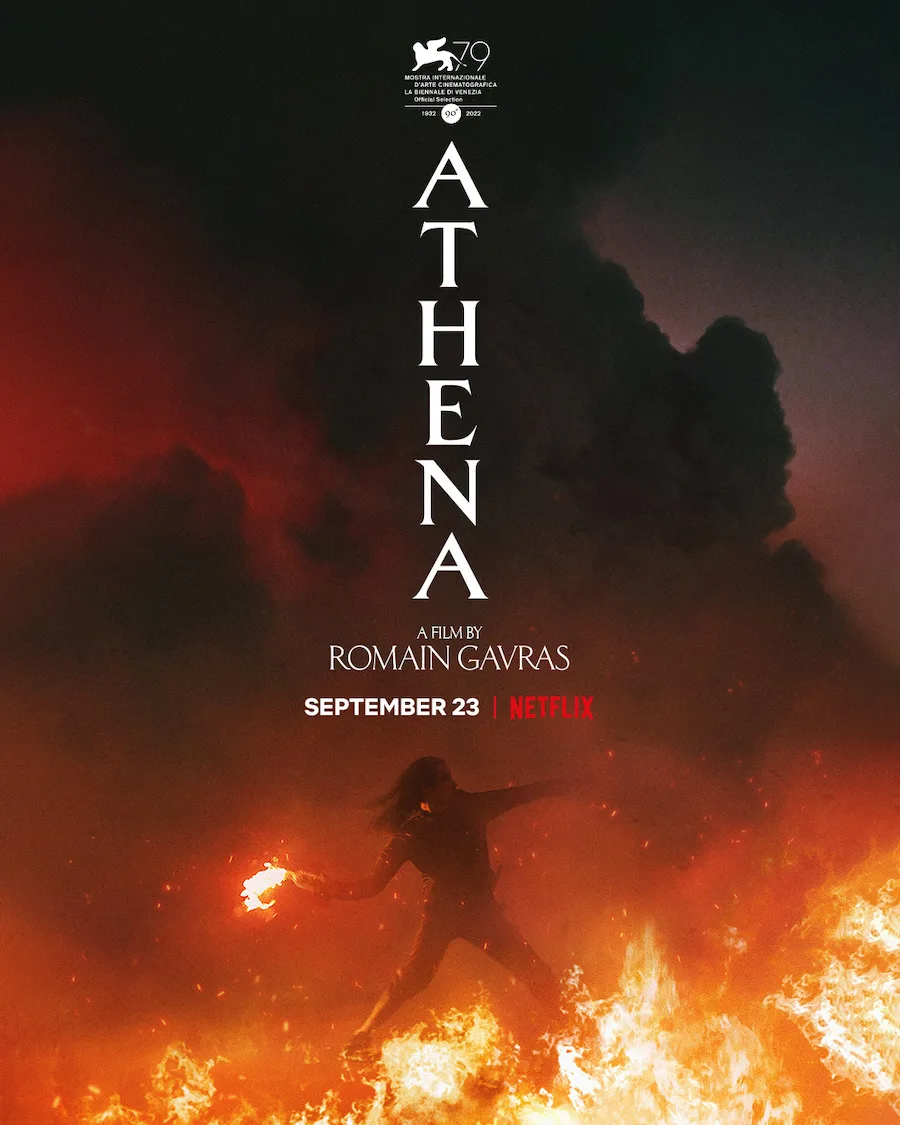You aren’t likely to see a more rightfully angry film this year than “Athena,” a non-stop opus examining the racism, inequality, and police violence that wreak havoc on France’s banlieue communities of color. That palpable fury rages through the film’s opening sequence, one that director Romain Gavras shoots in a pronounced single take that emphasizes its impressive craftsmanship; perhaps a little too loudly.
But mostly for good reason, as this sequence is simply one of the most challenging single takes we’ve seen in cinema recently, even when the technique is more accessible to filmmakers of all stripes these days (and emerged in mainstream TV discussions as of late, thanks to that crazy one-shot episode seven of the wildly popular “The Bear”). So let’s break it down, shall we? First, there’s the murmur of the news reports in the background, helping us pick up on the fact that police violence has been on the rise. Then we see the defiant face of Abdel (Dali Benssalah), a French soldier freshly returned from serving in Mali, and brother of the 13-year-old Idir who had just fallen victim to one such senseless instance of cop killing. There is undeniable grief in Abdel’s stance, and he does want justice. But the military officer keeps it cool all the same, inviting his community surrounding a police station to follow his example.
The camera doesn’t interrupt the movement and finds in the crowd Abdel’s brother Karim (Sami Slimane, a searing presence in his screen debut). His eyes burning with wrath, and his posture impatient, he lights up and throws a Molotov cocktail towards the door, starting a well-planned riot amid a rampaging crowd. Through that—and an overwhelming action sequence of smoke-filled chaos that follows—Karim and the protesters take control of the location as well as a hefty supply of guns, with cinematographer Matias Boucard’s unflinching and agile camera following them to their housing project, Athena: a place these revolutionaries proudly revere above all else, standing tall on its edges.
Truth be told, Surkin’s pulsating score that spreads itself over this sequence (and many other similarly impressive ones thereafter) is big and exhausting. The dynamic between the music and visuals is one that brings to mind Hans Zimmer’s occasional overindulgence when composing for Christopher Nolan—competing against the magnitude of the filmmaker’s already grand images, instead of amplifying them. But apart from that, “Athena”—a Greek tragedy constructed by the son of Costa-Gavras with recognizable hints of “Z”—immensely satisfies as a fast-moving political thriller and urban drama that feels genuinely cinematic, with technical finesse to spare.
Still, the film that essentially follows the late Idir’s three disparate brothers is more emotionally gripping in its rare moments that focus on small and quiet gestures and undercurrents. A realistically rendered (and recited) Islamic funeral prayer comes to mind, one that simmers with pain and familial grudges. Elsewhere, the third brother, Moktar (Ouassini Embarek), gives “Athena” one of its more challenging and narratively tricky storylines, being the sibling who’s found a way to line his pockets in the midst of all the injustice his people are subjected to. Running a drug operation out of Athena, Moktar’s primary interest happens to be his own survival and he’s not afraid to go to dubious lengths for it.
The astute and immersive script—written by Gavras, Elias Belkeddar, and Ladj Ly of the similarly themed “Les Misérables”—sees the brothers as representative pillars of the different ways immigrants and marginalized communities take on systems of power that are not designed for them to succeed. Abdel is something closer to a both-sides-ist, believing that there could be a harmonious way for the opposing ends to come together. Moktar is the opportunist, one who can look at a broken whole, see its cracks and muscle his way into those fault lines for financial gain and clout. Karim, on the other hand, is a young and scorching all-or-nothing radical, one who believes the system can’t be fair for anyone until it’s made to collapse and radically rebuilt.
While some of these struggles are specific to the French communities the film follows, they are also universal, with recent echoes deeply familiar here in the US. And despite a morally ambiguous parting note, “Athena” incisively engages with these battles despite a brassy style that at times overpowers them.
On Netflix today.




















